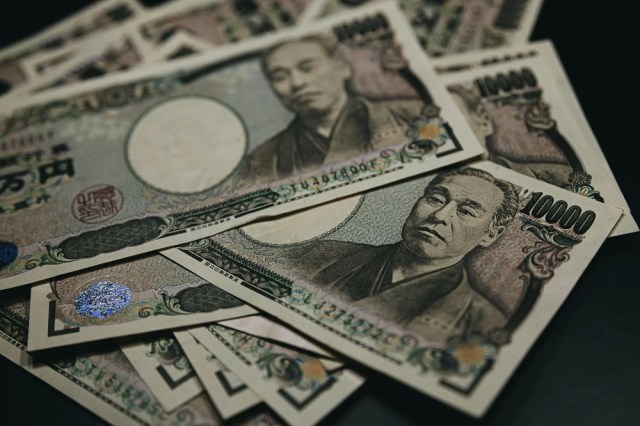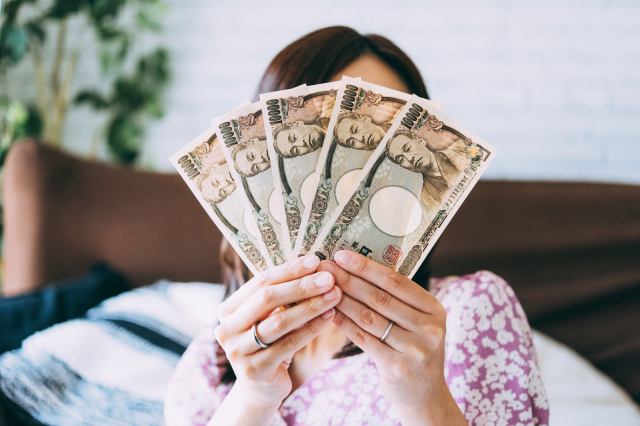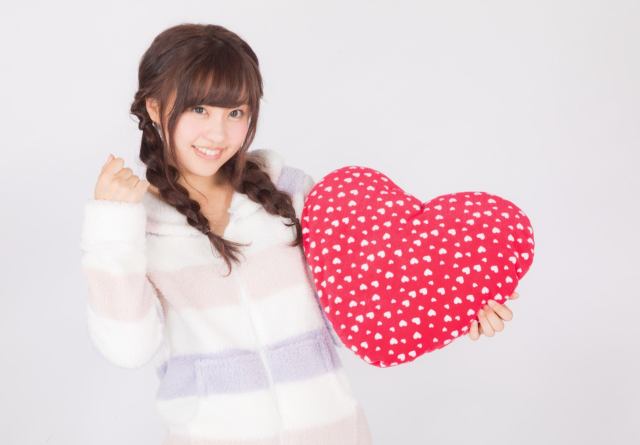
The millennial generation of women dishes on how they’ve spent the largest amount of money on themselves as a reward.
Japanese workers are known for working overtime and not taking all of the paid vacation time that they’re allotted. With such a rigorous workload, how do these workers find ways to actually enjoy their hard-earned paychecks?
It turns out that some ways are more common than others, at least for women. Gravity, a Japanese social media lifestyle app for connecting people with similar interests, recently surveyed 446 of its female users between the ages of 20-39 to find out what things they’ve splurged the most on in the name of fun. The following is a list of the top ten ways, both material and experiential, that their money has been spent on various self-indulgences.
▼ Yen in the hand definitely disappears more easily than yen in the bank.
10. Brand-name cosmetics
It’s hard to resist those sparkling counters of brand-name cosmetics found at any department store. Many respondents singled out the cost-effectiveness of splurging on makeup sets, which they can also use every day for a long time. Throw in seasonal colors of eye shadow, or a limited-time packaging design, and you’ve got a recipe for a way that female workers can also feel a bit more glamorous in the workplace.
9. Spa treatments
Survey respondents singled out spa treatments as a way to refresh and reward their minds and bodies for working so hard. An hour of various kinds of treatments such as a facial, massage, anti-aging treatments, or head spa can be a bit pricey, but even just one visit per month is well-worth the investment in themselves.
8. Expensive food
We’re actually a bit surprised that this one isn’t higher on the list! Many respondents noted that they’ve spent significant sums on very expensive meats, sweets, and fruits (the Shine Muscat grape variety in particular) to enjoy with family and friends.
▼ Wagyu, Japanese beef, was identified as a common food item for a splurge.
7. Musical instruments
Interestingly, some women decided to spend their money by purchasing instruments that they had played while growing up. Individual respondents cited the guitar and trumpet in particular as instruments that they wanted to pick back up. They also noted that an instrument is a great investment, since it can always remain their hobby moving forward.
6. International travel
While several survey respondents admitted shelling out vast amounts of money on international trips, including spending one million yen on one week abroad, they also noted that it was the best way for them to refresh and “escape from reality.”
5. Designer brand goods
Gucci, Dior, Fendi, and Hermes were a few of the brands that women noted splurging on with their wages. Some mentioned putting all of their annual bonuses towards such luxury items while one admitted to spending half of her money on a designer bag.
▼ “Half of my money is gone but I’ve got the bag of my dreams.”
4. Car
Many respondents voiced their love of cars and buying the car that they’d always wanted to drive as a personal reward. They also noted a car’s practicality for daily life, with one woman writing, “My entire world has changed.”
3. Beauty appliances, goods
Instead of going to the spa, many respondents noted that they’ve spent significant money on do-it-at-home beauty devices like hair irons or face rollers. This outlet for spending money also serves as another way for them to focus on their own well-being and invest in goods that should last them a long time.
2. Domestic travel
The runner-up way for women to treat themselves was domestic travel. Hot springs trips with friends, staying at luxurious hotels, and even traveling somewhere off-the-beaten path from Tokyo were all examples of the types of trips they’ve booked for fun.
1. Oshi-related goods
Here we have it–the number one way that survey respondents spent their money was towards their oshi, which is the idol, singer, or character of their complete devotion. Even if there’s zero chance of them ever meeting this favorite being, it seems that the act of pouring in everything they’ve got–both time and money for buying merchandise and going to events–was enough to make them feel fulfilled. As one woman wrote, “If you don’t have an oshi, you can’t work hard.”
▼ Keep working hard for the sake of your oshi!
Survey respondents who have spent the largest sums of money on their oshi may want to evaluate their current work situation to make sure it’s conducive for as many oshi-related activities as possible. If not, perhaps they’d prefer to work for this company which has paid time off specifically for oshi-related things.
Source: PR Times
Top umage: Pakutaso
Images: Pakutaso (1, 2, 3, 4)
● Want to hear about SoraNews24’s latest articles as soon as they’re published? Follow us on Facebook and Twitter!
[ Read in Japanese ]





 The top 10 traits of “domestic” women in Japan, according to Japanese men
The top 10 traits of “domestic” women in Japan, according to Japanese men Survey shows how Japanese couples feel about spending so much time together sheltering in place
Survey shows how Japanese couples feel about spending so much time together sheltering in place Do Japanese superfans really want to marry their favorite idol?【Survey】
Do Japanese superfans really want to marry their favorite idol?【Survey】 Japanese educator embezzled $69,200 over four years to fund mobile game microtransactions
Japanese educator embezzled $69,200 over four years to fund mobile game microtransactions Japanese work ethic tested, how high of a fever will you run before calling in sick?
Japanese work ethic tested, how high of a fever will you run before calling in sick? Foreigner’s request for help in Tokyo makes us sad for the state of society
Foreigner’s request for help in Tokyo makes us sad for the state of society Seaside scenery, history, and so many desserts on Yokohama’s Akai Kutsu【Japan Loop Buses】
Seaside scenery, history, and so many desserts on Yokohama’s Akai Kutsu【Japan Loop Buses】 Japanese city loses residents’ personal data, which was on paper being transported on a windy day
Japanese city loses residents’ personal data, which was on paper being transported on a windy day Should you add tartar sauce to Japanese curry rice? CoCo Ichi makes diners an unusual offer
Should you add tartar sauce to Japanese curry rice? CoCo Ichi makes diners an unusual offer Ghibli Park now selling “Grilled Frogs” from food cart in Valley of Witches
Ghibli Park now selling “Grilled Frogs” from food cart in Valley of Witches Historical figures get manga makeovers from artists of Spy x Family, My Hero Academia and more
Historical figures get manga makeovers from artists of Spy x Family, My Hero Academia and more The results are in! One Piece World Top 100 characters chosen in global poll
The results are in! One Piece World Top 100 characters chosen in global poll French Fries Bread in Tokyo’s Shibuya becomes a hit on social media
French Fries Bread in Tokyo’s Shibuya becomes a hit on social media Our visit to the coolest Book Off used Japanese book store that we’ve ever seen
Our visit to the coolest Book Off used Japanese book store that we’ve ever seen Mt. Koya planning to instate visitor’s tax to cope with huge tourist numbers
Mt. Koya planning to instate visitor’s tax to cope with huge tourist numbers McDonald’s new Happy Meals offer up cute and practical Sanrio lifestyle goods
McDonald’s new Happy Meals offer up cute and practical Sanrio lifestyle goods Japanese ramen restaurants under pressure from new yen banknotes
Japanese ramen restaurants under pressure from new yen banknotes Studio Ghibli releases new action figures featuring Nausicaä of the Valley of the Wind characters
Studio Ghibli releases new action figures featuring Nausicaä of the Valley of the Wind characters Red light district sushi restaurant in Tokyo shows us just how wrong we were about it
Red light district sushi restaurant in Tokyo shows us just how wrong we were about it New private rooms on Tokaido Shinkansen change the way we travel from Tokyo to Kyoto
New private rooms on Tokaido Shinkansen change the way we travel from Tokyo to Kyoto Tokyo Tsukiji fish market site to be redeveloped with 50,000-seat stadium, hotel, shopping center
Tokyo Tsukiji fish market site to be redeveloped with 50,000-seat stadium, hotel, shopping center Beautiful Ghibli sealing wax kits let you create accessories and elegant letter decorations【Pics】
Beautiful Ghibli sealing wax kits let you create accessories and elegant letter decorations【Pics】 Studio Ghibli releases Kiki’s Delivery Service chocolate cake pouches in Japan
Studio Ghibli releases Kiki’s Delivery Service chocolate cake pouches in Japan New definition of “Japanese whiskey” goes into effect to prevent fakes from fooling overseas buyers
New definition of “Japanese whiskey” goes into effect to prevent fakes from fooling overseas buyers Our Japanese reporter visits Costco in the U.S., finds super American and very Japanese things
Our Japanese reporter visits Costco in the U.S., finds super American and very Japanese things All-you-can-drink Starbucks and amazing views part of Tokyo’s new 170 meter-high sky lounge
All-you-can-drink Starbucks and amazing views part of Tokyo’s new 170 meter-high sky lounge More foreign tourists than ever before in history visited Japan last month
More foreign tourists than ever before in history visited Japan last month New Pokémon cakes let you eat your way through Pikachu and all the Eevee evolutions
New Pokémon cakes let you eat your way through Pikachu and all the Eevee evolutions Disney princesses get official manga makeovers for Manga Princess Cafe opening in Tokyo
Disney princesses get official manga makeovers for Manga Princess Cafe opening in Tokyo Sales of Japan’s most convenient train ticket/shopping payment cards suspended indefinitely
Sales of Japan’s most convenient train ticket/shopping payment cards suspended indefinitely Sold-out Studio Ghibli desktop humidifiers are back so Totoro can help you through the dry season
Sold-out Studio Ghibli desktop humidifiers are back so Totoro can help you through the dry season Japanese government to make first change to romanization spelling rules since the 1950s
Japanese government to make first change to romanization spelling rules since the 1950s Ghibli founders Toshio Suzuki and Hayao Miyazaki contribute to Japanese whisky Totoro label design
Ghibli founders Toshio Suzuki and Hayao Miyazaki contribute to Japanese whisky Totoro label design Doraemon found buried at sea as scene from 1993 anime becomes real life【Photos】
Doraemon found buried at sea as scene from 1993 anime becomes real life【Photos】 Tokyo’s most famous Starbucks is closed
Tokyo’s most famous Starbucks is closed One Piece characters’ nationalities revealed, but fans have mixed opinions
One Piece characters’ nationalities revealed, but fans have mixed opinions We asked a Uniqlo employee what four things we should buy and their suggestions didn’t disappoint
We asked a Uniqlo employee what four things we should buy and their suggestions didn’t disappoint Princesses, fruits, and blacksmiths: Study reveals the 30 most unusual family names in Japan
Princesses, fruits, and blacksmiths: Study reveals the 30 most unusual family names in Japan Live with parents or burn through your savings? Survey of young anime workers draws bleak picture
Live with parents or burn through your savings? Survey of young anime workers draws bleak picture More than one in three Japanese working women in survey would rather be housewives
More than one in three Japanese working women in survey would rather be housewives What’s the best way to close the gender gap in Japan? Japanese women weigh in
What’s the best way to close the gender gap in Japan? Japanese women weigh in Japanese workers reveal the 8 most astonishing things new employees do in the workplace
Japanese workers reveal the 8 most astonishing things new employees do in the workplace Survey reveals that more than 70 percent of otaku would choose their hobby over love
Survey reveals that more than 70 percent of otaku would choose their hobby over love More than half of young anime workers live with their parents or receive money from them【Survey】
More than half of young anime workers live with their parents or receive money from them【Survey】 Japanese women sound off on the line separating a male friend and a boyfriend
Japanese women sound off on the line separating a male friend and a boyfriend The five least stressful jobs, as ranked by Japanese working people
The five least stressful jobs, as ranked by Japanese working people Over 50 percent of single Japanese women in their 20s struggle to make ends meet, survey says
Over 50 percent of single Japanese women in their 20s struggle to make ends meet, survey says Survey finds big gap in Japanese train passengers who want to sit next to someone of opposite sex
Survey finds big gap in Japanese train passengers who want to sit next to someone of opposite sex Japanese girls reveal who they really give most Valentine’s chocolates to, and it’s not boys
Japanese girls reveal who they really give most Valentine’s chocolates to, and it’s not boys How much money do you need to live in your own apartment in Japan?【Survey】
How much money do you need to live in your own apartment in Japan?【Survey】 Executives arrested from scam dating sites that had 2.7 million users and only one female member
Executives arrested from scam dating sites that had 2.7 million users and only one female member Majority of younger Japanese people in survey respect less than 30 percent of their old coworkers
Majority of younger Japanese people in survey respect less than 30 percent of their old coworkers How should a guy say “I” in Japanese? Japanese women give their opinions【Survey】
How should a guy say “I” in Japanese? Japanese women give their opinions【Survey】
Leave a Reply